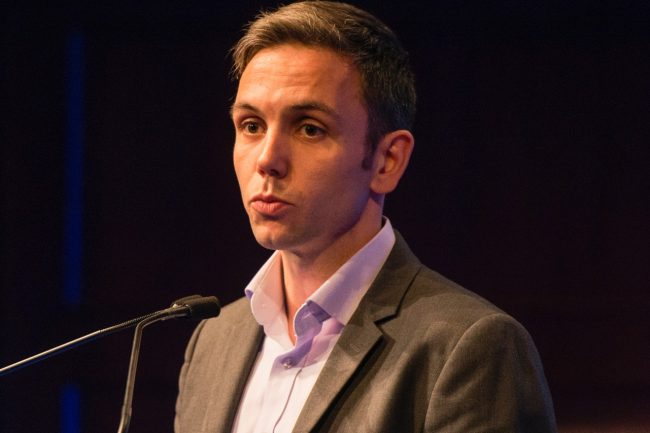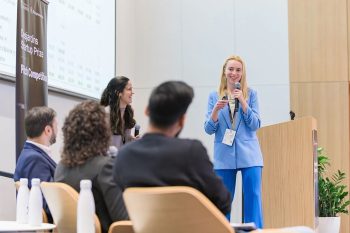Mihai “Mishu” Duduta recently joined the Department of Mechanical & Industrial Engineering (MIE) as an Assistant Professor in mechanical engineering.
As a Medical Devices Innovation Fellow at the University of Minnesota, Twin Cities, Duduta developed soft-robotic tools for endovascular interventions. He leads the Materials for Actuators, Robots & Batteries – Laboratory (MARB-L), which studies novel materials and processes to build actuators and batteries for robots of the future. Duduta completed his PhD at Harvard University, where he researched novel dielectric elastomer actuators (DEAs) for soft-robotic applications.
What drew you to MIE at U of T Engineering?
Within MIE, the major draws were: the quality and diversity of research being done across the Department, the high calibre of students at both the graduate and undergraduate levels, and the supportive and collaborative environment. More broadly, the close ties between U of T and the nearby research hospitals mean there are great avenues for collaboration for medical applications of soft robotics. Lastly, the field of robotics is growing tremendously, as evidenced by the Robotics Institute on campus, and the Toronto area has a thriving entrepreneurial ecosystem for taking new ideas to market.
Can you share a little about your research and what you like about it?
Robots are becoming more and more present in our daily lives, from manufacturing sites to hospitals, and even in our homes. My research is on soft robotics, a field focused on making machines that can safely interact with humans because they are made from compliant materials. One of the major challenges in the field is finding suitable artificial muscles to make these robots move as living creatures do. I’m fascinated by this field because we can use biology for inspiration and, in the process, learn more about natural systems.
What are your goals, as both an educator and a researcher, over the next few years?
Robotics is a cross-disciplinary field, so my goal as an educator is to give students the ability to view a problem from multiple perspectives and then distill it down to specific fundamental challenges. As a researcher my goal is to improve the performance of artificial muscles to enable new types of robots that solve real-world problems.
Do you have any unique hobbies?
While in Minnesota I went to the Boundary Waters to try portaging and found it to be a lot of fun. That’s when you canoe across a lake, then carry your canoe to the next lake and keep going. I know Ontario has areas that are great for portaging, so I look forward to trying that again.
Do you have a favourite spot on campus or in Toronto?
During my first trip to Toronto I enjoyed the Ripley’s Aquarium of Canada. As someone studying bio-inspired robots, the variety of fishes and sea creatures on display was stunning.



